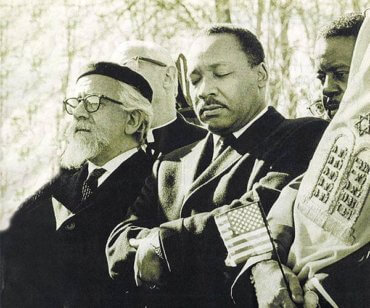Do Parallel Worlds / Alternate Realities Exist According to Judaism?
Dear JITC-
There’s a new movie called “The Dark Tower” (based on a Stephen King book) about parallel worlds/alternate realities. Does such a thing exist in Jewish thought?
-SciFi Junkie
Dear SciFi-
Thanks for your question. I haven’t read the “Dark Tower” series, and I don’t intend to see the film, but I am well acquainted with the multiple-worlds model from comic books and television shows like “Sliders.”
In real life, the many-worlds interpretation is an explanation of the quantum mechanics phenomenon in which different results exist in a superposition of states that collapse to a single result when observed. According to the many-worlds interpretation, all possible results actually do occur. We see just one of them; the other results occur among an infinite number of parallel universes.
This concept was popularized by Erwin Schrödinger’s famous thought experiment involving a cat. In Schrödinger’s scenario, a cat is imprisoned in a box with a vial of poison gas and a radioactive atom that has an equal chance of decaying or not. If it decays, the gas is released and the cat dies; if the atom doesn’t decay, the gas remains in the vial and the cat lives. Mathematically speaking, the results are in a superposition of states and the cat is both dead and alive. (People misunderstand Schrödinger’s point. He wasn’t trying to prove that the cat was actually both dead and alive until observed; he actually called the idea ridiculous. Not only have lay people taken Schrödinger’s cat more literally than Schrödinger ever intended, many later physicists actually use the example in the literal sense, counter to Schrödinger’s original point.)
So, if you’re asking does Judaism support the idea of parallel worlds – a world where Abel killed Cain rather than the other way around, a world where Egyptian viceroy Joseph exacted revenge against his brothers, a world where Korach overthrew Moshe, etc. – then no. There’s nothing that supports such a thing. (Not that there’s anything that precludes it per se. To my knowledge, the subject is simply not addressed.) But there are other worlds in Judaism, and I don’t mean just other planets. There are realities that exist in other planes entirely so that it would be impossible for us to travel there physically.
In our article on life on other planets, I wrote: “Other verses also suggest this possibility. Among these are Psalms 145:13, “Your Kingdom is a Kingdom of all worlds…,” and Song of Songs 6:8, which refers to “worlds without number.” (The former verse is familiar from Ashrei, recited in prayer thrice daily, as the verse malchuscha malchus kol olamim….) Similarly, the Talmud refers to God supervising “18,000 worlds” (Avodah Zarah 3b). Arguably, if God’s Kingdom encompasses so many worlds and He goes to the effort of supervising them, there very well could be something there to rule and supervise!”
There, I am working under the assumption that “worlds” means “planets,” though perhaps such is not the case! For example, let us consider Psalms 146:48, “Blessed be Hashem, the God of Israel, from world to world….” Rashi explains “from world to world” to mean “from this world to the Next World,” so at least there it refers to different planes of existence rather than to planets.
So what are “this world” and “the Next World?” Olam hazeh (this world) is easy enough. Like the name says, it’s this world: the world where we’re born, where we live and where we die. It’s the world where we grow up and go to school and get jobs and work until we retire. It’s the world where we eat and drink and excrete and reproduce. It’s the world where we have the opportunity to earn merits for our actions, but also the world where we run the risk of falling prey to our urges. You know. This world.
Olam haba is trickier. The Sages of the Talmud contrast this world with olam haba but they don’t define it. This term could refer either to a place or to a time, depending on whom you ask. The Rambam (Maimonides) is of the opinion that olam haba is place – namely, where our souls go after we die. The Ramban (Nachmanides), on the other hand, believes that it refers to the state of the world after the future revival of the dead. For our purposes, we’ll follow the position of Maimonides. (Most people translate olam haba as “the World to Come” but I prefer “the Next World.” What can I say? It’s an affectation.)
According to Derech Hashem (The Way of God), the classic work of Jewish metaphysics by Rabbi Moshe Chaim Luzzatto (AKA, the Ramchal), God placed man on the crossroads with the ability to choose his own path. Mankind has therefore been imbued with free will in the form of his yetzer hara (evil inclination) and yetzer hatov (good inclination). Man is a synthesis of two opposite components: a physical body and a spiritual soul. The body pursues physical things, while the soul pursues the spiritual, with the result that the two parts of a person are in constant struggle. At the end of this struggle, one is rewarded according to the degree of perfection he has achieved.
The period of earning reward and the period of enjoying it differ in that the former is limited and the latter is unlimited. It is therefore appropriate that the experiences of the two periods are also different. When we are engaged in our struggle for perfection, it makes sense that our environment contains the elements that cause our conflicting urges to struggle. Therefore, in this world, physical and spiritual elements are in constant battle, and there’s nothing to stop our physical urges from gaining the upper hand. In the next world, however, the opposite is appropriate: when it is time to receive our reward, it is fitting that the spiritual side dominate and the physical is suppressed. This is why God created two worlds of different natures. We strive for perfection in this world (olam hazeh) and we enjoy our reward in the Next World (olam haba), each one designed for its intended purpose.
This reward, however, is only temporary. One’s ultimate reward awaits in the reborn world following the aforementioned revival of the dead, when one’s soul is reunited with his newly-purified body. In the period awaiting that revival, the body and soul must reside in appropriate locations. The body is returned to the ground as per Genesis 3:19 (“For dust you are and to dust you shall return”) while the soul awaits reunification with the body in what is called the olam haneshamos, the “world of souls.” Rambam, as we have said, identifies olam haba with the olam haneshamos; according to the Ramban, however, they would be different things. (Derech Hashem I, 3 – I explore this more fully in The God Book.)
Not every soul is ready for olam haba; some people simply haven’t earned it. But most of these souls can be cleansed of their misdeeds so that they can then be rewarded for their merits. This takes place in Gehinnom (“Hell”). This is another world you “can’t get to from here,” though getting into the details of Divine reward and punishment strays a little too far from our current topic.
Another world aside from our own is actually all around us. I refer to the spiritual world. We can perceive the physical world with our senses, including both terrestrial and celestial phenomena. The former includes such things as soil, water and air, while the latter includes the stars and planets. The spiritual world, however, cannot be detected with our senses or technology. Creations of the spiritual world are of two types: neshamos (souls) and nivdalim (“those set apart”). Souls are spiritual creations designed to be placed into bodies in order to perform certain tasks. Nivdalim, on the other hand, are independent spiritual creations, not designed to merge with bodies. These include both angels in their various types as well as numerous forces.
We are familiar with the physical realm because we live in it. The phenomena of the spiritual world, on the other hand, are outside of our experience, with the result that we lack the ability to discuss them properly. The only meaningful way we can express ideas on this subject is through the traditions that have been passed down to us. One of the basic concepts we have received is that everything physical has a spiritual counterpart. The physical and spiritual entities are somehow connected so that the physical item is like an extension of the spiritual thing into our world, like the branch of a tree. Additionally, every physical thing is under the supervision of an “angel” (which need not be a sentient being) whose job it is to maintain the object according to its nature. The physical world’s existence is maintained by forces emanating from the spiritual world.
Since man is a physical being, our actions can only affect the physical world directly. However, since the physical and spiritual worlds are linked, our actions indirectly affect objects’ counterparts in the spiritual world as well. God has set limits, however, to the amount that humanity can affect the spiritual world. (Derech Hashem I, 5 – again, discussed in greater detail in The God Book.)
So are there other worlds just as real as our own but beyond our ability to perceive? Absolutely. But a world where Lincoln was never shot, where the British won the revolution or where Moshe led the Jews into Israel and built a Temple that was never destroyed? To my knowledge no Jewish source discusses or supports such an idea idea. If you’re looking for that kind of thing, you’ll have to stick to Star Trek and Crisis on Infinite Earths.
Sincerely,
Rabbi Jack Abramowitz
JITC Educational Correspondent
If you found this content meaningful and want to help further our mission through our Keter, Makom, and Tikun branches, please consider becoming a Change Maker today.







